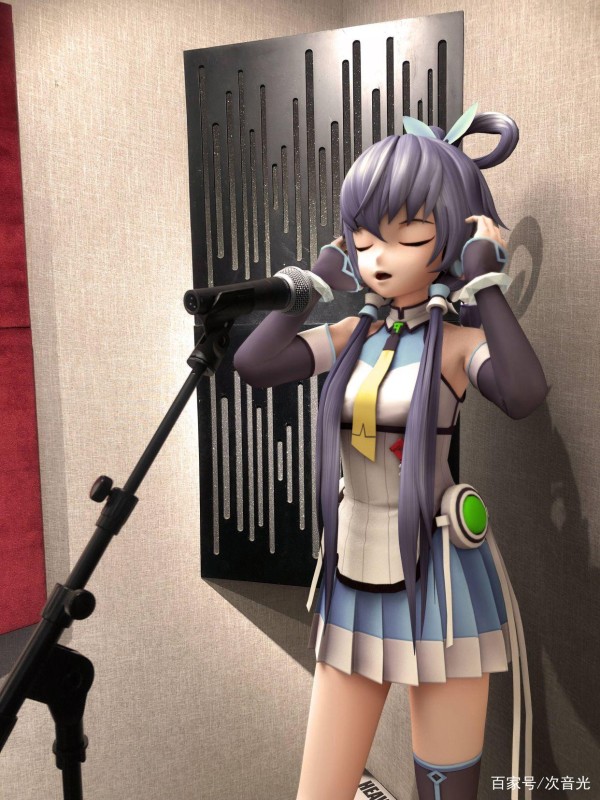追星or追随大粉?
在当今的社交媒体时代,追星已经成为了一种普遍的现象,尤其是在年轻人群体中。随着娱乐产业的蓬勃发展,越来越多的演员偶像崭露头角,他们凭借出色的作品或魅力吸引粉丝。然而,在这个过程中,出现了一种有趣的现象,即许多粉丝的注意力似乎逐渐转移,从最初对明星本身的关注,转向对所谓“大粉”的追随。
“大粉”一词,是粉丝圈中一个独特的角色。这些人通常活跃于各大社交平台,拥有大量的关注者,并且在圈子里有一定的影响力。他们通过各种手段,比如发布明星的独家资讯、组织线下应援活动,或者在明星遭受负面新闻时出面维护,从而赢得了其他粉丝的认同与追捧。正因如此,大粉在某种程度上逐渐从普通粉丝中脱颖而出,成为了一个被广泛认可的群体。
然而,随着大粉的影响力不断扩大,一些问题也开始显现。追星本应是出于对明星本身的喜爱,无论是他们的才华、个性,还是他们在荧幕前或舞台上的表现,都是粉丝追随的原因。但如今,越来越多的人似乎已经不再是单纯地喜欢明星,而是变成了对大粉的追随。一些粉丝不再关注明星的作品或活动,而是将目光锁定在大粉的一举一动上,甚至开始跟随大粉的喜好和观点。这种现象引发了不少粉丝的困惑与反思:在到底是在追星,还是在追大粉?
首先,我们需要认识到,追星本质上是一种情感的寄托与认同。粉丝通过支持自己喜欢的明星,表达自己内心的情感需求,获得心理上的满足感。在这个过程中,明星作为公众人物,他们的生活与作品常常成为粉丝讨论的热点。然而,当大粉的出现改变了这一现象,追星的初衷也随之发生了变化。许多粉丝为了在圈子中获得认同,开始更多地追随大粉的观点,而不再是自己对明星的直接感受。这种现象表明,追星文化正在变得越来越复杂,甚至在某种程度上扭曲了其原本纯粹的意义。
其次,大粉的存在不仅改变了粉丝与明星之间的关系,也在粉丝圈内部引发了新的权力斗争。由于大粉在粉丝圈中的影响力不断上升,一些大粉开始组成小团体,抱团取暖,形成了相对封闭的圈子。在这些圈子里,他们的言论和行动往往具有一定的权威性,其他粉丝如果不认同或质疑,可能会遭到排斥或攻击。这种抱团现象加剧了粉丝圈内部的分裂,使得原本该是和谐、共同支持明星的氛围变得充满敌意的对立。
追随大粉的现象不仅在粉丝圈内造成了问题,也对明星本人产生了一定的负面影响。明星需要的是广泛的支持和关注,而非仅仅依赖于少数大粉的宣传与维护。当粉丝们把过多的注意力放在大粉身上,而忽视了明星本人的发展与努力时,实际上削弱了明星与大众之间的直接联系。明星之所以能够走红,主要是因为他们能够获得大量粉丝的关注,而不仅仅是因为某些大粉的推广。因此,如果追星变成了追大粉,这不仅有损粉丝的独立判断力,也会影响明星的事业发展。
大粉现象的出现,背后折射出的是粉丝心理的复杂性。在这个信息爆炸的时代,粉丝们往往很难单凭自己的力量获取所有关于明星的信息,他们需要依赖某些权威的声音,而大粉恰好满足了这种需求。大粉作为信息的中介,承担了连接明星与粉丝的桥梁作用。但问题在于,当这个中介的作用被无限放大,甚至凌驾于明星与粉丝的关系之上时,追星的本质便受到了侵蚀。
大粉的影响力来自于他们的资源优势和话语权,他们凭借自己在圈子中的影响力和话语权,吸引了一批自己的“粉丝”。而那些追随大粉的“粉丝”,出于对大粉的忠诚,会无条件地支持和维护大粉的言行,甚至在面对质疑时采取极端的态度。这种现象在粉丝圈内往往引发冲突,使得原本该是团结一致支持明星的群体,出现了不必要的矛盾与分裂,并形成了一种对立的氛围,便容易使其他粉丝感到不适。
从心理学角度来看,追随大粉的粉丝有时会把对明星的感情转移到大粉身上。他们希望通过支持大粉,获得一种在群体中的归属感和认同感。而一旦这种依附关系形成,他们往往会对大粉过度依赖,甚至在面对外界批评时感到需要捍卫大粉的“尊严”。这种心理机制类似于偶像崇拜,只不过崇拜的对象从明星转移到了大粉。这种情感的转移可能让一些人误以为,他们是在支持明星,而实际上,他们更多地是在维持与大粉之间的情感纽带。
而这种情感纽带的存在也带来了不少问题。大粉毕竟是普通人,他们并不具备明星的公众责任感与道德约束。因此,当大粉及其追随者因为内部矛盾或意见冲突而发生摩擦时,这种纠纷的处理方式往往更加情绪化和不理智。大粉的追随者过度维护甚至攻击他人的行为,不仅破坏了粉丝圈的和谐,也让整个群体显得更加分裂和对立。
对于一些粉丝而言,他们并未意识到自己已经偏离了追星的初衷。大粉的存在让他们感到有一种归属感和认同感,这种情感甚至比明星带给他们的满足感更为强烈。于是,追随大粉成为了一种新的社交行为,而追星的核心意义逐渐被模糊。在这种情况下,我们不禁要问:到底是大粉的力量太过强大,还是粉丝的自我意识过于弱化?追星应该是一个自由表达情感的过程,却为何丧失了自主表达权利,选择去跟风追随某些权威的声音。
其实,追星本身并无对错,问题的关键在于如何平衡个人对明星的热爱与对圈子内意见领袖的依赖。粉丝应当时刻保持对明星的独立判断,而非盲目跟随大粉的脚步。每个人都有自己的审美和价值观,追星的过程也应当是一个自我表达与欣赏的过程,而不是被他人意见左右。只有这样,追星才能真正成为一种健康、积极的文化现象,而不是陷入无意义的内耗与斗争之中。
总之,追星本应是出于对明星的爱与支持,而大粉的出现,虽然在某些方面便利了粉丝获取信息的渠道,但其过大的影响力也容易导致追星文化的异化。追星不应变成追随大粉的活动,粉丝应当提醒自己,以免偏离了自己最初的喜好与初衷。最终,我们追随的不应该是那些站在明星与粉丝之间的中介,而是带给我们快乐和放松的演员偶像。
In today's social media era, star chasing has become a common phenomenon, especially among young people. With the booming entertainment industry, more and more actor idols have emerged, attracting fans with their outstanding works or charm. However, in this process, an interesting phenomenon has emerged, that is, the attention of many fans seems to have gradually shifted from the initial focus on the stars themselves to the pursuit of the so-called "big fans".
The term "big fan" is a unique role in the fan circle. These people are usually active on major social platforms, have a large number of followers, and have a certain influence in the circle. They win the recognition and pursuit of other fans through various means, such as publishing exclusive information about stars, organizing offline support activities, or defending stars when they suffer negative news. Because of this, big fans have gradually stood out from ordinary fans to a certain extent and become a widely recognized group.
However, as the influence of big fans continues to expand, some problems have begun to emerge. Star chasing should be based on the love for the stars themselves, whether it is their talent, personality, or their performance on the screen or on the stage, which are the reasons for fans to follow. But nowadays, more and more people seem to no longer simply like stars, but have become followers of big fans. Some fans no longer pay attention to the works or activities of stars, but focus on the every move of big fans, and even begin to follow the preferences and opinions of big fans. This phenomenon has caused confusion and reflection among many fans: Are they chasing stars or chasing big fans?
First of all, we need to realize that chasing stars is essentially a kind of emotional sustenance and recognition. Fans express their inner emotional needs and gain psychological satisfaction by supporting their favorite stars. In this process, stars, as public figures, their lives and works often become hot topics for fans to discuss. However, when the emergence of big fans changed this phenomenon, the original intention of chasing stars also changed. In order to gain recognition in the circle, many fans began to follow the opinions of big fans more, rather than their direct feelings about stars. This phenomenon shows that the star-chasing culture is becoming more and more complicated, and even distorts its original pure meaning to some extent.
Secondly, the existence of big fans not only changes the relationship between fans and stars, but also triggers new power struggles within the fan circle. As the influence of big fans in the fan circle continues to rise, some big fans have begun to form small groups and form relatively closed circles. In these circles, their words and actions often have a certain degree of authority, and other fans may be excluded or attacked if they disagree or question them. This phenomenon of grouping has exacerbated the division within the fan circle, turning the atmosphere that should have been harmonious and supported the star into a hostile confrontation.
The phenomenon of following big fans not only causes problems within the fan circle, but also has a certain negative impact on the stars themselves. What stars need is widespread support and attention, rather than relying solely on the publicity and maintenance of a few big fans. When fans pay too much attention to big fans and ignore the development and efforts of the stars themselves, they actually weaken the direct connection between the stars and the public. The reason why stars can become popular is mainly because they can get the attention of a large number of fans, not just because of the promotion of some big fans. Therefore, if chasing stars becomes chasing big fans, this will not only undermine the fans' independent judgment, but also affect the career development of stars.
The emergence of the big fan phenomenon reflects the complexity of fans' psychology. In this era of information explosion, it is often difficult for fans to obtain all the information about stars on their own. They need to rely on some authoritative voices, and big fans just meet this need. As an information intermediary, big fans play the role of a bridge connecting stars and fans. But the problem is that when the role of this intermediary is infinitely magnified, or even overrides the relationship between stars and fans, the essence of star chasing is eroded.
The influence of big fans comes from their resource advantages and voice. They attract a group of their own "fans" by virtue of their influence and voice in the circle. And those "fans" who follow big fans, out of loyalty to big fans, will unconditionally support and defend the words and deeds of big fans, and even take extreme attitudes when facing doubts. This phenomenon often causes conflicts in the fan circle, causing unnecessary contradictions and divisions in the group that should have united to support the star, and forming an atmosphere of opposition, which easily makes other fans feel uncomfortable.
From a psychological point of view, fans who follow big fans sometimes transfer their feelings for stars to big fans. They hope to gain a sense of belonging and identity in the group by supporting big fans. Once this kind of attachment is formed, they tend to become overly dependent on big fans, and even feel the need to defend the "dignity" of big fans when facing external criticism. This psychological mechanism is similar to idol worship, except that the object of worship has shifted from stars to big fans. This emotional transfer may make some people mistakenly believe that they are supporting stars, but in fact, they are more about maintaining an emotional bond with big fans.
The existence of this emotional bond also brings many problems. Big fans are ordinary people after all, and they do not have the public responsibility and moral constraints of stars. Therefore, when big fans and their followers have friction due to internal contradictions or conflicts of opinion, the way to deal with such disputes is often more emotional and irrational. The behavior of big fans' followers over-protecting or even attacking others not only destroys the harmony of the fan circle, but also makes the entire group appear more divided and antagonistic.
For some fans, they do not realize that they have deviated from the original intention of chasing stars. The existence of big fans makes them feel a sense of belonging and identity, which is even stronger than the satisfaction that stars bring them. As a result, following big fans has become a new social behavior, and the core meaning of chasing stars has gradually become blurred. In this case, we can't help but ask: Is it that the power of big fans is too strong, or that fans' self-awareness is too weak? Star chasing should be a process of expressing emotions freely, but why do they lose the right to express themselves independently and choose to follow the voices of certain authorities?
In fact, there is nothing right or wrong in star chasing. The key to the problem lies in how to balance one's love for stars with one's dependence on opinion leaders in the circle. Fans should always maintain independent judgment on stars, rather than blindly following the footsteps of big fans. Everyone has their own aesthetics and values, and the process of star chasing should also be a process of self-expression and appreciation, rather than being influenced by the opinions of others. Only in this way can star chasing truly become a healthy and positive cultural phenomenon, rather than falling into meaningless internal consumption and struggle.
In short, star chasing should be out of love and support for stars, and the emergence of big fans, although in some aspects, has facilitated fans' channels for obtaining information, its excessive influence can easily lead to the alienation of star chasing culture. Star chasing should not become an activity of following big fans, and fans should remind themselves so as not to deviate from their original preferences and original intentions. Ultimately, what we should follow are not those intermediaries who stand between stars and fans, but the actor idols who bring us happiness and relaxation.
网址:追星or追随大粉? http://c.mxgxt.com/news/view/725985
相关内容
大明星追妻记佛系追星or私生饭 双鱼座如何对待偶像
追星秘籍:做追随者♂️
大学英语六级作文学生习作~追星现象
橙光大明星追妻记下载
杨洋低调现身香港街头,粉丝狂热追随!
你不追星?不,人人都追星!
追星追到黄牛:粉丝经济的隐秘代价
张国荣的粉丝,至今乃在追随
追随偶像的狂热与自我迷失:当粉丝忘却自我时

